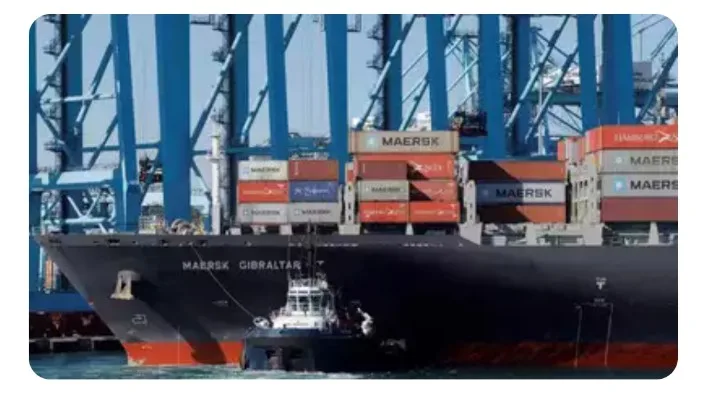In response to a recent attack by Yemeni rebels on the Maersk Hangzhou container ship, one of the world’s leading shipping companies, Maersk, has declared a suspension of its vessels’ passage through the Red Sea strait for the next 48 hours. The Bab al-Mandab Strait, often referred to as the “Gate of Tears” in Arabic, witnessed the Maersk Hangzhou being targeted by a missile, followed by additional aggression from four Houthi ships attempting to board the vessel.
The decision to halt all transits through the affected area comes as a preventive measure following these hostile incidents. This move has severed a vital trade link for India, as the country heavily relies on the Bab-el-Mandeb Strait for trade with the Middle East, Africa, and Europe.
The strait, facilitating 12% of global trade and accommodating 30% of the world’s container traffic, has experienced escalating tensions throughout 2023. Various drone attacks, military maneuvers by regional and global powers, and the recent attack on the Maersk Hangzhou have contributed to the heightened state of alert in the region.
With billions of dollars worth of traded goods and supplies passing through the Red Sea annually, any delays in this strategic waterway can impact petrol prices, the availability of electronics, and other facets of global trade. Notably, most major shipping firms have avoided using the Bab el-Mandeb strait for trade with Europe since December 15, redirecting their routes around the Cape of Good Hope. This alternative route increases voyage distances by 40%, subsequently raising transportation time and costs.
Experts are emphasizing the need for India to diversify trade routes and enhance regional maritime security cooperation to mitigate increased costs and security risks. The closure of this critical trade route emphasizes the vulnerability of global trade to geopolitical tensions in key maritime passages.




